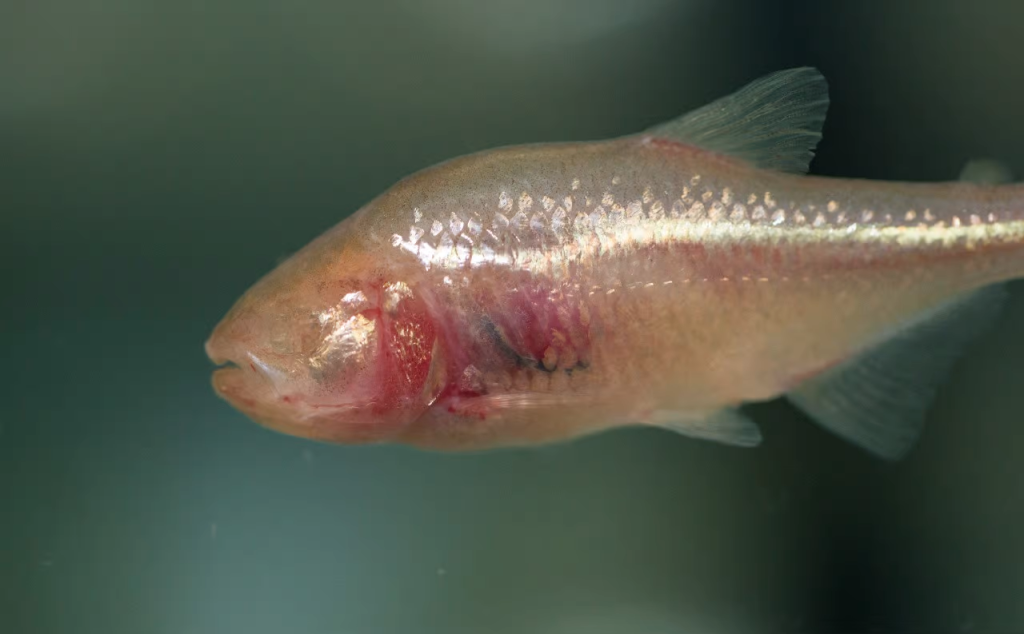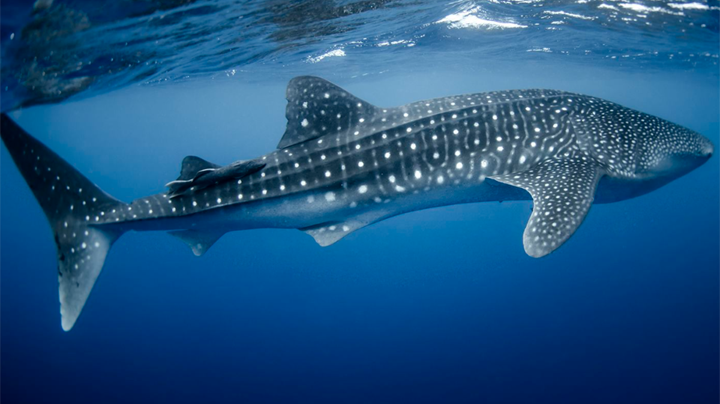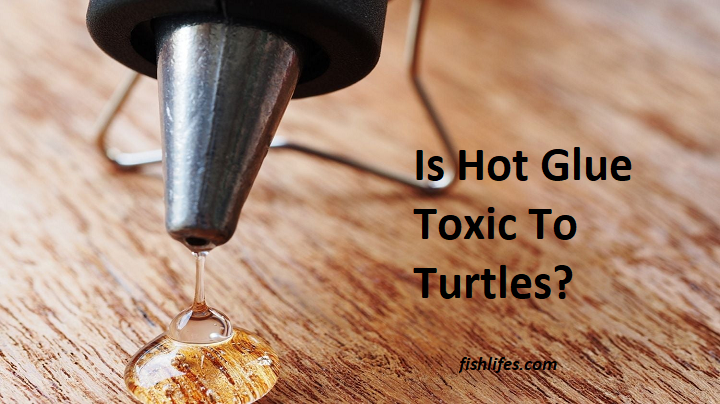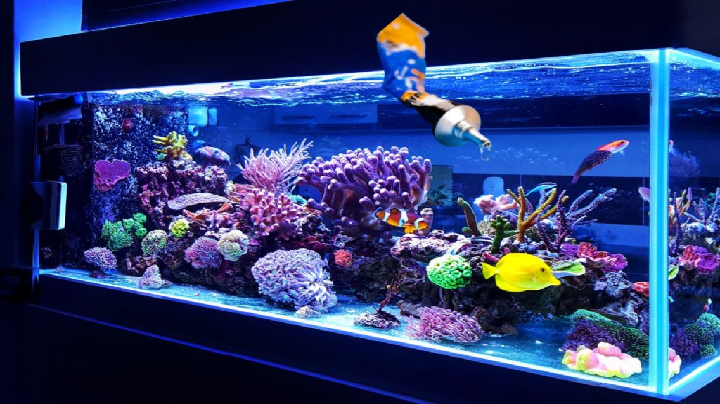Is My Fish Blind? Many fish owners ask themselves this question at some point. If you’ve ever wondered if your fish is blind, you’re not alone. While it’s impossible to know for sure what’s going on inside your fish’s head, there are some telltale signs that your fish may be blind.
It turns out that fish vision is quite different from human vision, and there are a few things that can cause blindness in fish. In this article, we’ll discuss the causes, symptoms, and ways to care for a blind fish.

Can my Fish go Blind?
Yes, fish can go blind. Fish rely on their eyesight for many things, such as finding food and avoiding predators. When a fish’s eyes are damaged, it can become blind. There are many causes of blindness in fish, including disease, injury, and old age.
Blindness can be a big problem for fish. They may have trouble finding food or avoiding predators. In some cases, blindness can even lead to death. If you think your fish may be going blind, it’s important to get them to a vet or aquarium specialist right away.
One of the most common causes is a disease called “cotton mouth”, which is caused by a bacteria that attacks the eyes and skin. Another common cause of blindness in fish is damage to the eyes from chemicals or physical trauma.
Another cause of blindness in fish is a disease. Diseases such as tuberculosis and cancer can cause blindness by growing tumors on or near the eyes. Cataracts are another common cause of blindness in fish. Cataracts are cloudy areas on the eye that block light from entering the eye.
Some fish are born without eyes, but this is rare.
How do I Know is my Fish Blind?
There are several signs that your fish may be blind.
You’re Fish Bump into Objects
Blind fish bump into objects because they cannot see. To determine if your fish is blind, you should observe it for a period of time. If the fish does not appear to be avoiding obstacles and seems to be bumping into things frequently, it is likely to blind
Your Fish Doesn’t React to Movement
If your fish is easily startled, or it takes a while for them to notice movement around them and it doesn’t seem to have any reaction to movement, it’s possible they can’t see it.
You’re Fish Swims Erratically
If your fish is swimming erratically, it may be a sign that it is blind. Fish rely on their vision to help them navigate their environment, so if they can’t see, they will swim in a straight line and may swim into objects.
Your Fish has a Hard Time Finding Food
If your fish is missing its food more often than not, it may be going blind. A fish that can see will have no problem finding food, but a blind fish will have a hard time since it cannot see where the food is.
Your Fish has Cloudy Eyes
If you notice that your fish’s eyes are cloudy, it’s a sign that something is wrong. Cloudy eyes can be a sign of several different diseases, so it’s important to take your fish to the vet for a check-up as soon as possible.
Your Fish has Bulging Eyes
If their eyes are bulging out of their head more than usual. This can be caused by a number of things, including an infection or a tumor
Your Fish has Cataracts
If you notice your fish has a cloudy film over its eyes, it may have cataracts. Cataracts are common in older fish and can be caused by a number of factors, including poor water quality, old age, and injuries.
What does a Blind Fish Look Like?
A blind fish is a fish that does not have eyes. It may have empty eye sockets, or it may have scales covering its eyes. Blind fish live in caves and other dark places where there is no light.
Blind fish are not a pretty sight. They often have cloudy eyes, bulging eyes, or cataracts. They may also have several injuries on their body. While they may not be able to see, they can still feel their way around. Blind fish are a common sight in pet stores.
Can Fish Go Blind from Light?
Yes, fish can go blind from light. In fact, many fish are nocturnal, meaning they are more active at night. Fish that are active during the day often have a layer of pigment in their eyes that helps protect them from the bright sunlight. However, if a fish is exposed to too much light, this pigment can break down, causing the fish to go blind.
A new study has found that fish exposed to light at night become blind. The research, conducted on zebrafish, found that the fish lost their sight within two weeks of being exposed to light at night.
Can a Blind Fish Survive?
Yes, a blind fish can survive. Although they are at a disadvantage, they can use their other senses to make up for their lack of vision. Blind fish have been known to live as long as fish with sight.
A recent study has shown that blind fish can indeed survive in the wild. The study, conducted by researchers at the University of Edinburgh, looked at a species of fish called the cavefish.
These fish live in complete darkness and have no eyes. The researchers found that the cavefish were able to use their sense of touch to find food and avoid predators.
The study provides new insight into how animals can adapt to different environments. It also shows that even without vision, animals can still thrive in the wild.

How to Care for a Blind Fish?
Blind fish is a unique and interesting pet to have. Though they require some extra care, it is not difficult to take care of a blind fish. Here are a few tips on how to care for your blind fish:
One of the most important things to remember when caring for blind fish is to keep them out of direct sunlight or bright artificial light. This can be done by keeping their tank in a low-light area of your home or office, or by using an aquarium cover.
In addition to avoiding bright light, it’s important to provide your blind fish with plenty of hiding places. This can be done with plants, rocks, and other decorations. Blind fish feel safest when they have somewhere to hide, so give them plenty of options.
Make sure the water quality is good. This is especially important for blind fish because they can’t see any potential threats in the water.
Keep the tank clean. A dirty tank can be harmful to all fish, but it can be hazardous for blind fish because they can’t avoid debris and waste.
Feed them high-quality food. Blind fish may have a harder time finding food, so it’s important to give them something that is nutritious and easy to eat.
You’ll want to use fine gravel or sand as your substrate. This will help prevent your fish from getting scratched or hurt.
It is important to have the proper tank setup. The tank should be well-lit so that the fish can see their food and avoid obstacles. It is also important to have a filter and aeration system in the tank. This will help keep the water clean and oxygenated for the fish.
You will need to feed your blind fish specially formulated food that contains all of the nutrients they need. You can find this type of food at most pet stores. Be sure to follow the feeding guidelines on the package so that you do not over or under-feed your fish.
How to Feed a Blind Fish
Blind fish are not that different from regular fish when it comes to feeding them. They still need to be fed small amounts of food several times a day. The biggest difference is how you deliver the food to them. You will need to use your fingers to guide the food into their mouths.
When first starting out, it is best to feed them live food such as brine shrimp or blood worms. This will help entice them to eat and get them used to be fed in this way. Once they are comfortable with being fed, you can start giving them regular fish food pellets or flakes.
To ensure they are getting enough to eat, you can observe their bellies. If they appear bloated, then they have been overfed and you should cut back on the amount of food you are giving them.

Keep the Blind Fish in a Separate Tank
Blind fish are not able to see and rely on their other senses to navigate their environment. This means that they are more susceptible to stress and can easily become injured. If you decide to keep blind fish in a separate tank, provide them with plenty of hiding places and ensure the water quality is excellent.
Feed them Easy-to-Swallow Food
When feeding blind fish, it is important to choose foods that are easy for them to swallow. Otherwise, the fish may choke on their food and die. Some good choices for easy-to-swallow food include brine shrimp, daphnia, and tubifex worms.
Brine shrimp are a good choice for blind fish because they are small and soft. The shrimp are also high in protein, which is necessary for the growth and development of blind fish. Daphnia is another good choice for blind fish because they are also small and soft. In addition, daphnia is rich in nutrients like phosphorus and calcium, which are essential for the health of blind fish. Tubifex worms are also a good choice for blind fish because they are soft and easy to swallow.
Try Feeding them the Food they are used to before going Blind
When it comes to keeping your blind fish healthy, one of the most important things you can do is try to feed them the food they are used to before going blind. This means that you should not change their diet too drastically and that you should avoid giving them new foods that they may not be able to handle.
One way to help ensure that your blind fish get the nutrition they need is to feed them a variety of different foods. This way, even if they cannot see what they are eating, they will still be able to get the nutrients they need from the food.
Use a Feeding Tube
When you have a blind fish, it is important to use a feeding tube. This will help the fish to get the food that it needs without having to see it. The tube will also help to keep the fish from getting hurt.
A feeding tube is a small tube that goes into the mouth of the fish. The other end of the tube is placed in the food. The fish then eats the food through the tube.
Mix some Garlic into the Food
Blind fish that live in dark caves rely on a keen sense of smell to find food. University of Edinburgh researchers found that adding garlic to the food improved the fish’s ability to find and eat it.
Adding garlic to the food of blind fish living in dark caves can help them find and eat it, according to new research from the University of Edinburgh.
Garlic contains a compound called allicin, which is known for its antibacterial and antiviral properties. This can help to keep blind fish healthy by preventing them from getting sick. In addition, allicin can also improve circulation and help to keep the immune system strong.
Adding garlic to your fish food is easy to do and can make a big difference in the health of your blind fish. Simply add a few cloves of garlic to the food and mix it well. Your fish will love the flavor and you’ll be happy knowing that they’re getting all the benefits of this healthy ingredient.
Be Patient
When it comes to caring for a blind fish, the most important thing to remember is to be patient. It may take some time for your fish to adjust to its new surroundings and get used to swimming without being able to see. But with a little patience and some help from you, your blind fish will soon be swimming just like any other fish.
Can Fish Eyes Grow Back?
Yes, blind fish can grow their eyes back. Researchers have found that certain species of fish are capable of regenerating their eyesight. While the process is not fully understood, it is believed that the fish use stem cells to regenerate lost tissue.
A team of scientists from James Cook University in Australia has discovered that blind fish eyes can indeed grow back. The team made the discovery while studying a species of cavefish known as the Texas Blind Cavefish.
The scientists found that when the fish lost their sight, they grew new eye tissue within two weeks. Even more incredibly, the new tissue was functional and allowed the fish to see again.
A gene known as Atoh7 is responsible for the growth of the optic nerve and retina. When this gene is mutated, it can cause blindness. However, researchers have found that if the gene is turned back on, it can restore vision. This is why scientists believe that it may be possible to develop a treatment for blindness that targets this gene.
This is an amazing discovery that could have implications for humans who have lost their sight. While we don’t yet know if human eyes can regenerate in the same way, this study provides hope that one day we may be able to restore vision to those who have lost it.
Conclusion
In conclusion, if you think your fish may be blind, there are a few things you can do to help. First, check to see if there are any changes in the tank, like new decorations or plants. Second, look for physical changes in the fish, like cloudy eyes or rubbed fins. And finally, pay attention to your fish’s behavior – are they bumping into things or having trouble finding food? If you’re still not sure, talk to a veterinarian or Fish care professional.







